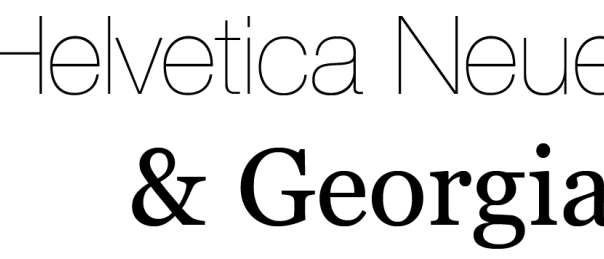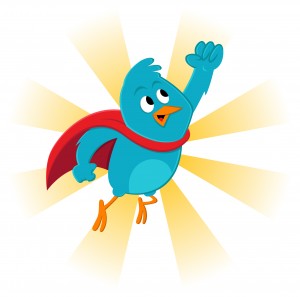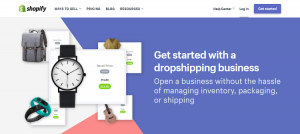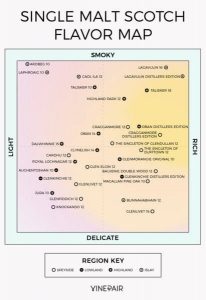
Why would a company remove their office address from a brochure or ask for marketing material to be developed that will never go to print? Why would a marketing piece be written in a way that assumes the reader will only peruse the subheads and perhaps a few bullet points?
These requests are real, so what is prompting companies to dramatically revise the way they are choosing to communicate? The answer is more straightforward than you might think. Taken out of context, these demands may seem a little offbeat, but they actually reflect an important shift towards digital media. As digital marketing slowly subsumes some traditional forms of communication, companies are learning to adapt their marketing material to reach audiences in new ways.
The cues are everywhere. Here are a few we are seeing and believe are 5 signs that digital marketing is replacing traditional media.
1. Office addresses disappear
Companies are doing away with their physical office location(s) on marketing material. Instead, they are asking for three reference pieces of information in documents created in interactive Portable Document Format (PDF), a format that supports features such as hyperlinks and buttons:
- the company name
- the company website with a hyperlink
- the company phone number with a link that will open a phone dialer
The shift is proof that for some businesses, technology is making geographic location irrelevant. Companies can service and communicate with clients all over the world, and they want their literature to transcend references to a physical location.
2. Interactive PDFs
Now more than ever, brochures are created as interactive PDFs which assume readers will view them on their desktop, tablet or mobile device. A high resolution rendering of a document on screen opens up a host of visual options not available in print. For some organizations, printable versions are almost an afterthought, sometimes used only for a conference display table. Rather, the marketing strategy is simply to send brochures that are both visual and interactive and then push for a meeting.
3. Uber thin fonts
In marketing material, there are often font combinations that contrast paragraph text from subheads or headings. For example, you might see all of the subheads in a sans serif font (fonts without little projections at the tips of the letters) and the paragraph text in a complimentary serif font (fonts with the decorative tips at the ends of the letters). The combination gives the piece visual appeal and sets apart important headings.

With digital delivery of marketing material, it is possible to use extremely thin fonts which convey a crisp, sophisticated look. These types of fonts are more challenging to use in print, especially over a dark background. An example of a popular combination we like to use in interactive PDFs is Helvetica Neue UltraLight and Georgia.
4. 24/7 digital marketing requests
The workday is on a global 24-hour clock, and client requests even extend through the weekend. It’s really no surprise. Proofs are exchanged electronically. The cloud helps creative teams work from anywhere. We have reached out to firms in other countries and timezones to help us with our work. Platforms such as Upwork, have freelancers from all over the world that actively bid on projects. The payment portal and user experience are almost effortless, and in some ways easier than traditional billing and payment cycles.
Sometimes clients put work requests in on a Friday evening, and even with several rounds of revisions throughout the weekend, the finished product is ready on Monday. I personally don’t believe digital marketing is meant to fit neatly into Monday to Friday office hours, and why not take advantage of a global talent pool for project work?
5. Less, more impactful content
It’s not a coincidence that platforms like BuzzFeed, a social news and entertainment network, and Snapchat, a social messaging app, have huge user growth. They offer imagery, immediacy and in the case of Snapchat, the ability to post a “snap” that even disappears after it is viewed. They remind us how brief the period of time is that a digital marketer has to capture someone’s attention.
Companies see the same trends and observe clients quickly scanning their marketing materials if the brochure is even read at all. The challenge for content creators in the digital age is to write less frequent, more impactful content. If concepts can be represented visually or interactively, they will more easily catch the reader’s attention for a marketing edge.
There’s no doubt that when it comes to marketing, change is all around us. Companies are thinking more about who they want to reach and how. With a suite of digital tools available, getting a message out has never been easier. Ideating content good enough to rise above the marketing noise and captivate an audience – that’s as hard as ever.
Originally published October 18, 2015 on Resourceful Business blog.
photo credit: Takashi Hososhima from Tokyo, Japan (A typewriter) [CC BY-SA 2.0], via Wikimedia Commons
Digital & Social Articles on Business 2 Community(258)
Report Post







